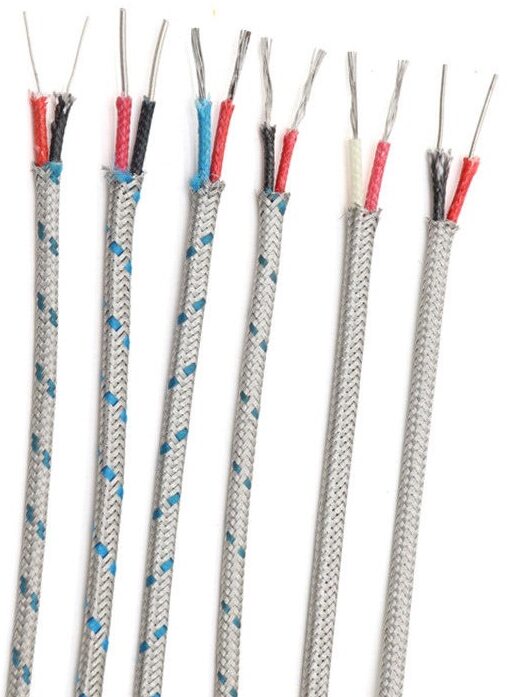Product Description :-
Fiberglass Insulated with Metal overbraid Thermocouple Wire and Extension Wire ( Metal Material : Stainless steel-SSB, Tinned plated copper-TCB, Iron plated Zinc-IZB )
Thermocouples are widely used to measure temperature. This works on the thermoelectric effect; whereby a metal will generate a voltage when heated. By taking the differential voltage generated when two different metals in the same circuit are heated it is possible to measure changes in temperature as a change in voltage.
In order to get an accurate measurement, expensive metals are commonly used within the temperature probe itself. For long cable runs however, the cost of these metals becomes prohibitive and for that reason Cable manufacture a range of extension and compensation cables. As standard, Cable offers Class 1 thermocouples which provide the tightest tolerance and most accurate measurements.
Compensating cable is of different composition to extension cable (it uses alternative, cheaper alloys) but has a similar temperature. relationship over a limited range, and should only be used for joining thermocouples to their measuring instruments. It can only be used in limited ambient temperature, generally not higher than 800℃。
Also, compensating cable is less accurate than extension cable in terms of thermal tolerance values (typically double).
With long cable runs, the cable may need to be screened and earthed at one end (at the instrument) to minimize noise pick-up (interference) on the measuring circuit. Alternative types of screened cable construction are available and these include the use of copper or Mylar screening.





